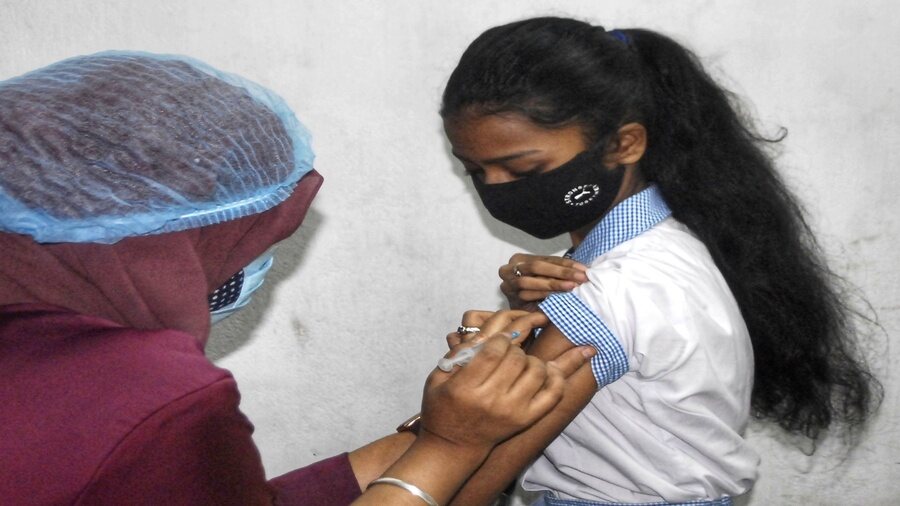Children between nine months and 15 years will be given a dose of the measles-rubella (MR) vaccine in their schools across West Bengal as part of a programme to eradicate measles and control rubella, state health department officials said.
The officials said this was the first time that schools had been involved in the MR vaccination programme, a move aimed at maximising the coverage.
The children in that age group who are already vaccinated against the diseases will be offered the jab, too.
The special vaccination drive will be held for five weeks, from January 9 to February 11. About 2.3 crore children will be eligible for the jab across West Bengal, said an official in the health department.
In Kolkata, there are about 12 lakh children in the nine months-to-15 years age group who are eligible for the jab, said an official of the Kolkata Municipal Corporation (KMC).
During the first three weeks, camps will be set up in schools to administer the vaccine. In the remaining two weeks, a mop-up campaign will be done so that those who missed out on the dose are convinced and taken to health centres and hospitals where the jab will be administered.
“The aim of the drive is to identify those who have not yet taken a single dose of the MR vaccine despite having reached the eligible age,” said a KMC official.
The Union health ministry on Wednesday announced a special additional dose of the measles and rubella vaccine for children six months to five years amid a rise in measles in Bihar, Gujarat, Haryana, Jharkhand, Kerala and Maharashtra.
Apurba Ghosh, pediatrician and director of the Institute of Child Health (ICH), said all eligible children should take the injection.
Ghosh said there was no harm in administering the injection even to those who have already completed their MR or MMR (measles-mumps-rubella) vaccination. MMR vaccines, because of their high cost, are not given for free in government-run centres. MR shots, however, are administered for free at government centres.
“The Centers for Disease Control and Prevention in the US has published data that shows that the largest numbers of measles cases have been reported from India in 2022,” Ghosh said.
“Children who have already taken the MR vaccine can again take the injection. Those who have taken the MMR vaccine, too, can take the injection. There is no harm.”
Narayan Swaroop Nigam, secretary in West Bengal health department, said the plan is to administer the dose to children in their schools. Those who will be left out will be identified during a mop-up campaign.
“Our field workers will visit households and find out if anyone has missed the dose. Parents of those children will be asked to take their wards to designated centres for the jab,” said Nigam.
The MR vaccination is of two doses — the first is delivered when a child is nine months old and the second when she or he is between 16 and 24 months.
The MMR immunisation protocol consists of three shots. The first is injected when a child is nine months old, the second in the ninth month and the third after five years.
The KMC and the state health department have held a meeting with the authorities of various schools on the vaccination schedule. Some of the bigger schools — with 1,000 students or more — were not represented at the meeting, said a KMC official.
The civic body will again approach these schools, the official said. The KMC has also appealed to all councillors to speak to schools and help its health department execute the special vaccination drive.
